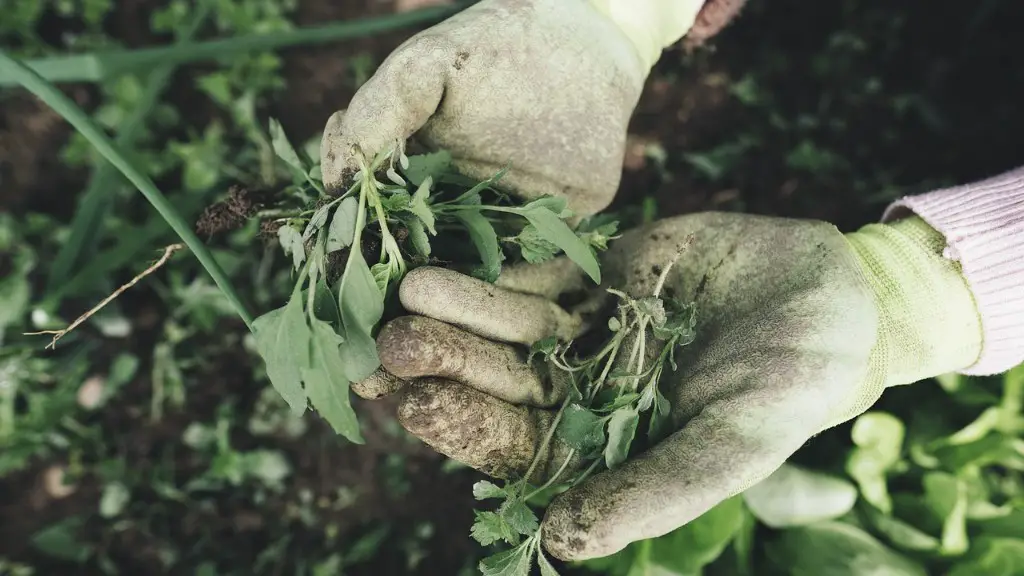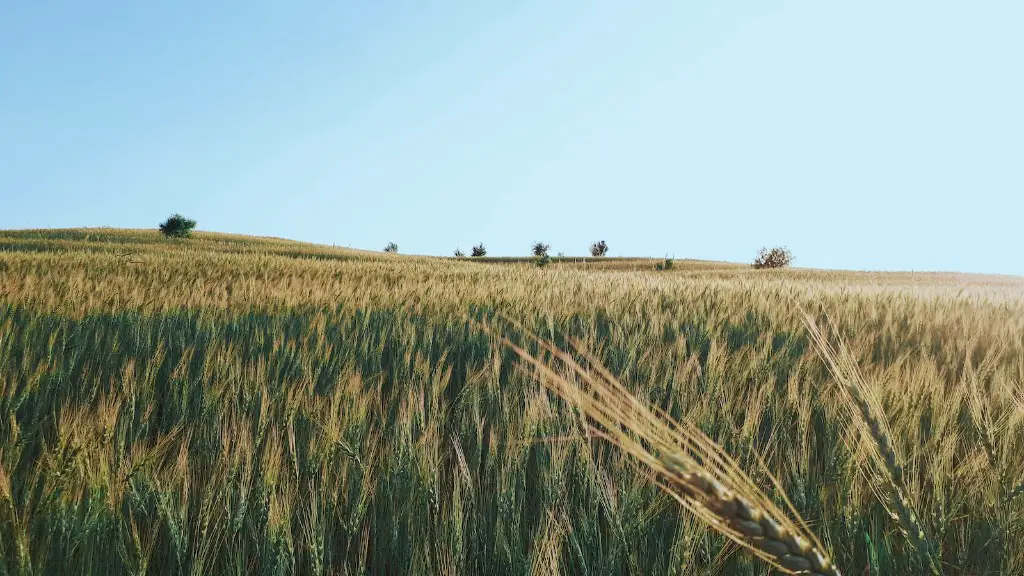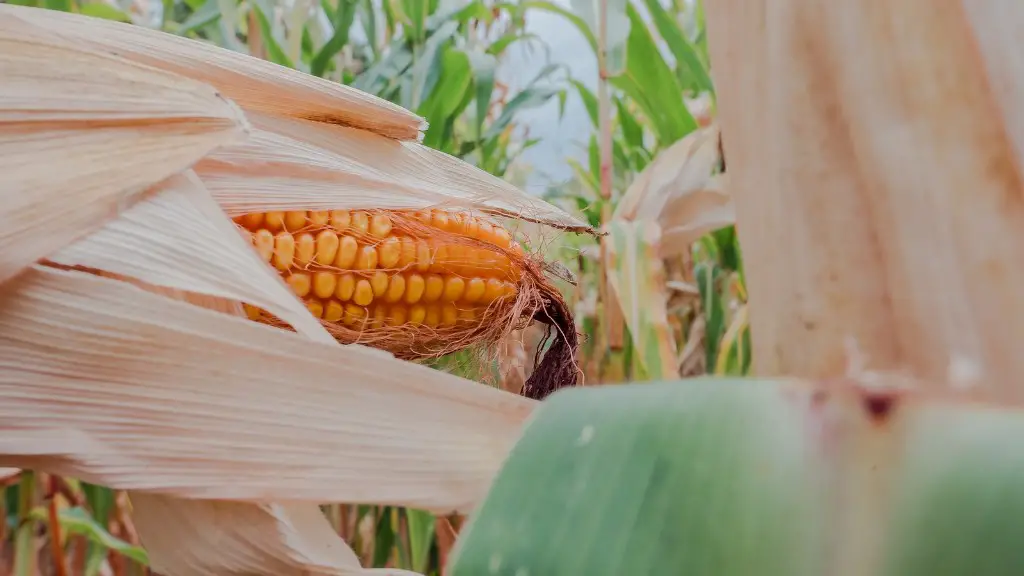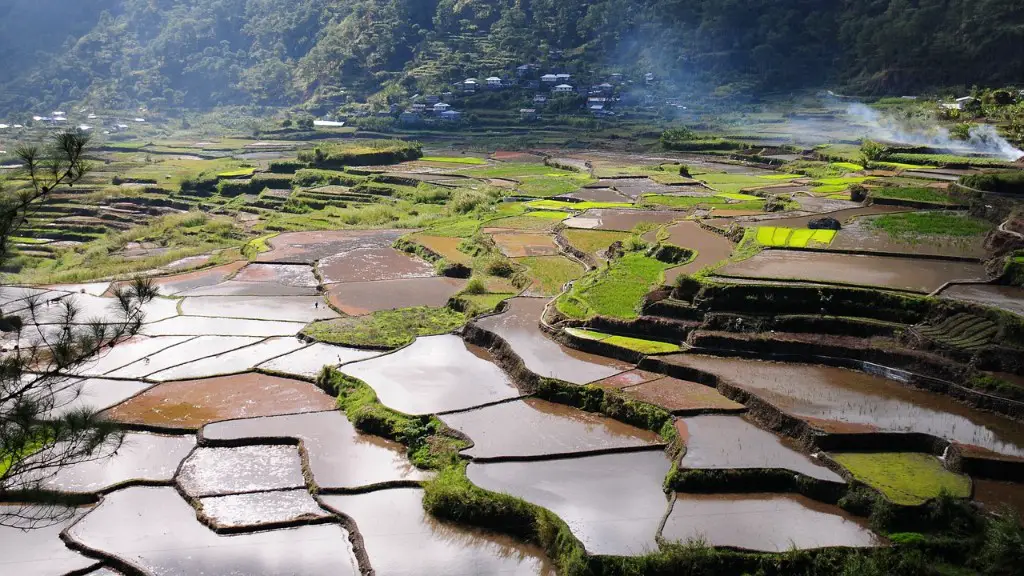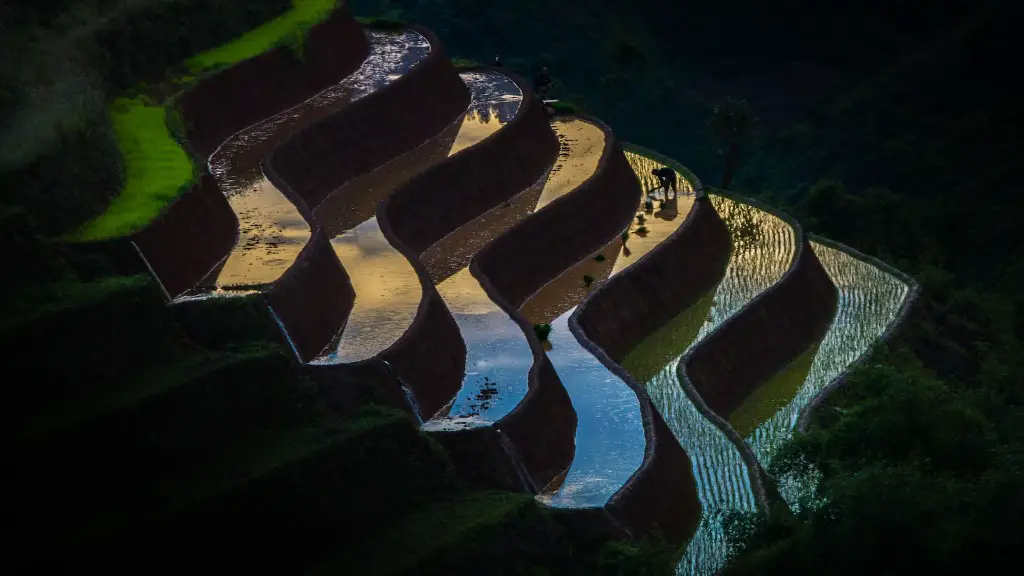Organic and sustainable agriculture are two methods of farming, both of which strive to promote healthy crops and natural soils. The primary difference between the two is that organic agriculture follows guidelines set out by a particular governing body, whereas sustainable agriculture incorporates many of the philosophies of organic agriculture while also considering environmental, economic and social factors. To fully understand the difference between organic and sustainable agriculture, it is important to consider their histories, production methods, and goals.
Organic agriculture was first developed in the early 1940s and focuses on natural growing without external inputs, such as synthetic chemicals and genetically modified organisms. The goal of organic agriculture is to grow crops without negatively impacting the environment by reducing environmental pollution and conserving natural resources. Certified organic farms must adhere to standards set by their governing body, such as the US Department of Agriculture.
Sustainable agriculture takes organic agriculture one step further and takes into account the land’s long-term potential for crop production. It is based on a set of principles that emphasize stewardship of the land to maintain its current productivity levels and consider its long-term potential. Sustainable agriculture focuses on maintaining the natural environment, conserving natural resources and reducing pollution, as the primary goals of the farming system. Additionally, sustainable agriculture considers the economic and social impacts of farming, such as providing jobs and supporting local communities.
The primary differences between organic and sustainable agriculture are the goals and production methods. Organic farms must adhere to strict standards set by their governing body and must eliminate external inputs such as synthetic chemicals. Sustainable farms integrate approaches from organic agriculture while also considering the economic, environmental and social impacts of the farming system. It is important to note that both of these methods of farming are focused on promoting healthy crops and soils while maintaining environmental standards.
In conclusion, organic and sustainable agriculture are both methods of farming that strive to promote healthy crops and soils while minimizing environmental degradation. The primary difference between the two is that organic agriculture follows guidelines set out by a particular governing body, whereas sustainable agriculture incorporates many of the philosophies of organic agriculture while also considering environmental, economic and social factors.
History and benefits of organic farming
Organic farming is an agricultural production method that relies on natural methods and materials, such as crop rotation and composting. It is a type of sustainable agriculture that works to enhance the health of soils, ecosystems and people, while avoiding the use of synthetic chemicals and genetically modified organisms. Organic farming has historical roots in traditional farming practices and has gained popularity in recent decades due to its potential for a healthy environment, healthy food and healthier profits.
Organic agriculture has been practiced for centuries and is founded on the “natural, organic systems developed by humans to grow crops and rear animals.” It is an agricultural system that emphasizes maintaining and improving the soil, increasing biodiversity and using natural inputs such as compost and manure instead of synthetic fertilizers and pesticides. It can also include the use of natural pest control, such as attracting beneficial insects, to prevent crop damage. These methods reduce the amount of synthetic inputs, which can be harmful to the environment and human health.
Organic farming has many benefits, both for the environment and for humans. By relying on natural inputs instead of synthetic inputs, organic farming reduces soil and water pollution and sequesters carbon, which can help mitigate climate change. Additionally, organic produce is fresher and more nutritious, as it is produced without the use of synthetic chemicals and often contains more minerals and vitamins. Finally, organic farms typically require more labor and have more diversified incomes, which can help build and strengthen local economies.
Organic agriculture has helped to revolutionize sustainable farming practices and promote healthy ecosystems and communities. It is a type of sustainable agriculture that is based on traditional farming practices and focuses on maintaining and improving the environment and human health, while avoiding the use of synthetic chemicals.
History and benefits of sustainable agriculture
Sustainable agriculture is a type of production system that takes into account the land’s long-term potential for crop production and its potential for maintaining sustainability. It is based on a set of “agronomic, economic and social principles.” It emphasizes stewardship of the land to maintain its current productivity and considers its long-term potential, taking into account social, economic and environmental factors.
The history of sustainable agriculture goes back more than a century and can be traced to the late 19th and early 20th centuries, when farmer-scientists such as Albert Howard in England and Liberty Hyde Bailey in the United States were advocating for production methods that were sustainable and that minimized environmental degradation. In the 1960s and 1970s, advocates for sustainable agriculture began to focus on the concept of sustainability, emphasizing social, economic and environmental considerations.
Sustainable agriculture has many benefits, both for the environment and for people. By taking into account social, economic and environmental factors, sustainable agriculture encourages diversity, which can help build and strengthen local economies. It can also help reduce the amount of synthetic inputs, such as synthetic fertilizers and pesticides, which can be harmful to the environment. Additionally, sustainable agriculture sequesters carbon, reduces water pollution and increases the availability of nutrient-dense foods, which can benefit human health.
Sustainable agriculture has helped to revolutionize sustainable farming practices and promote healthy ecosystems and communities, while also keeping in mind the economic and social impacts of farming systems. It encourages diversified, resilient and profitable farms, while also minimizing the amount of synthetic inputs and promoting a healthy environment.
The connection between organic and sustainable agriculture
Organic and sustainable agriculture are two different production systems, but they are connected by their goals of promoting health and sustainability. While organic agriculture focuses on eliminating external inputs, such as synthetic chemicals, and promoting natural methods such as crop rotation, sustainable agriculture takes these practices one step further and considers the economic, environmental and social impacts of farming systems.
Organic and sustainable agriculture share many of the same principles and practices, such as the use of natural inputs, rotation of crops, and conserving natural resources. Sustainable agriculture, however, goes beyond the guidelines set out by organic governing bodies and takes into account the specific microclimates, landscapes and ecosystems of the land. Additionally, sustainable farms consider the social and economic benefits, such as jobs and support for local communities, of the farming system.
Organic and sustainable agriculture are both methods of farming that strive to promote health and sustainability. While organic agriculture is focused on reducing external inputs, sustainable agriculture incorporates many of the same principles while also taking into account the economic, environmental and social impacts of farming. It is important to note that both types of farming are focused on minimizing environmental damage and promoting a healthy environment.
Comparison of organic and sustainable agriculture
Organic and sustainable agriculture are two different methods of farming, but they both strive to promote health and sustainability. By understanding the differences and similarities between the two, growers can find production methods that are best suited to their needs. Here is a comparison of organic and sustainable agriculture.
History: Organic agriculture has its roots in traditional farming practices and has gained popularity in recent decades, while sustainable agriculture was first developed in the 1960s and 1970s and focuses on taking into account the economic, environmental and social impacts of farming.
Production methods: Organic agriculture relies on natural inputs such as compost and manure and does not include the use of synthetic fertilizers and pesticides, while sustainable agriculture takes these natural methods and also considers the social and economic benefits of the farming system.
Goals: The primary goal of organic agriculture is to grow crops without impacting the environment, while sustainable agriculture focuses on maintaining the natural environment while also considering economic and social factors.
Benefits: Both types of farming have many benefits, such as reducing soil and water pollution, sequestering carbon, providing fresher and more nutritious foods and strengthening local economies.
Organic and sustainable agriculture are two different methods of farming, but they have a lot in common. Both strive to promote health and sustainability and use natural methods to reduce the amount of synthetic inputs. Each type of farming has its own set of goals and production methods that should be taken into account when determining the best method for your farm.
Limitations of organic and sustainable agriculture
Organic and sustainable agriculture are two methods of farming that strive to promote health and sustainability. But like any production system, each has its own limitations. Organic agriculture requires expensive certification, and many organic farms find it difficult to stay in business due to the cost of certification and lack of access to markets. Additionally, organic agriculture is limited in its reliance on external inputs, such as synthetic chemicals, and can be difficult to scale due to its focus on natural inputs.
Sustainable agriculture is limited in its ability to incorporate external inputs, such as synthetic chemicals. Additionally, it can be difficult to measure the economic and social benefits of sustainable agriculture, as these benefits are often difficult to quantify. Finally, sustainable agriculture is time-intensive and requires knowledge of the local environment and specific ecosystems, which can make it difficult to implement on a large scale.
Organic and sustainable agriculture have limitations that must be taken into account when choosing a production system. Organic agriculture relies on natural inputs and can be difficult to scale due to its focus on natural inputs, while sustainable agriculture is limited by its reliance on external inputs and its time-intensive nature. It is important for growers to understand the limitations of each production system and weigh them against their own farming needs.
Conclusion
Organic and sustainable agriculture are two methods of farming that strive to promote health and sustainability, while also minimizing environmental degradation. The primary difference between the two is that organic agriculture follows guidelines set out by a particular governing body, while sustainable agriculture incorporates many of the philosophies of organic agriculture while also considering environmental, economic and social factors. Both methods of farming have benefits and limitations that should be weighed when choosing the best production system for the farm.
